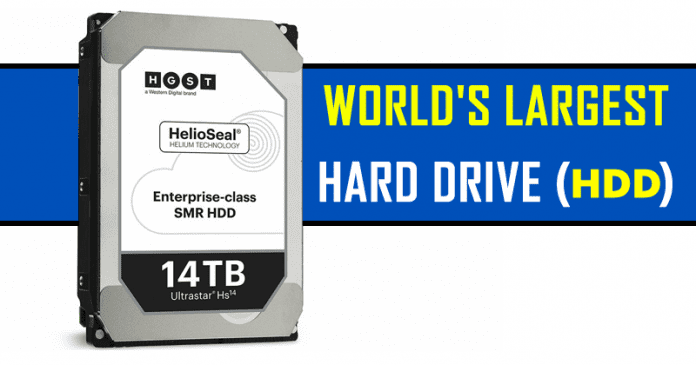HDD is the traditional rotating hard drive that allows basic non-volatile storage that a computer uses. Hard disks are essentially metal trays with a magnetic layer. A read/write head is an arm that accesses the data, while the disks are spinning in the box containing the hard disk.
A hard drive is the traditional storage medium used by desktops, consisting of a rigid disk constructed of a non-magnetic material that is coated with a thin layer of magnetic material. The data is basically stored on HDD simply by magnetizing this thin film of the HDD. As the disk rotates at high speed while the magnetic head which is mounted on a mobile arm simply allows reading and writing data.
A hard drive typically operates at a speed of 7200 rpm (revolutions per minute), although some server disks can rotate at speeds up to 15000 rpm. You can often see that number as part of the technical specifications of the computer. The rotation made by a hard disk represents how the disk rotates when reading information. The faster the turntable spins, the faster a hard drive can perform read/write operations.
While SSDs are more easily scalable, hard drives are more limited in capacity because of the way they work because they are skirting the limits of their technology. Despite this, companies are still working to offer greater capacity in the HDD, and that ends today with the new model of Western Digital.
Yes, the well-known HDD manufacturing company, of course, I am talking about the Western Digital which has recently announced the release of another HDD for anyone who wants space, plenty of space above anything.
As with 15TB of memory and name 15TB Ultrastar DC HC620, this is the world’s largest storage capacity magnetic drive. Western Digital itself has counted the required physical space on servers to have the same amount of memory, which is lower when you use fewer drives – which are denser and spend less power since less magnetic drives run. The account, in addition to space, puts the HDD as 31% more economical when idle compared to other models.
To achieve high density, the brand uses HelioSeal technology, the same technology that made the 14 TB model from last year and that even allows more space in the future – 16 TB next year?
Like any “first in the world,” the Western Digital model should not cost a little, but it will certainly cost much less than Nimbus Data’s SSD. The sky is the limit for those who need a lot of disk space from a local computer and do not want to sign any cloud plan that gives unlimited memory on other companies’ servers. So, what do you think about this? Simply share all your views and thoughts in the comment section below.
A hard drive is the traditional storage medium used by desktops, consisting of a rigid disk constructed of a non-magnetic material that is coated with a thin layer of magnetic material. The data is basically stored on HDD simply by magnetizing this thin film of the HDD. As the disk rotates at high speed while the magnetic head which is mounted on a mobile arm simply allows reading and writing data.
A hard drive typically operates at a speed of 7200 rpm (revolutions per minute), although some server disks can rotate at speeds up to 15000 rpm. You can often see that number as part of the technical specifications of the computer. The rotation made by a hard disk represents how the disk rotates when reading information. The faster the turntable spins, the faster a hard drive can perform read/write operations.
While SSDs are more easily scalable, hard drives are more limited in capacity because of the way they work because they are skirting the limits of their technology. Despite this, companies are still working to offer greater capacity in the HDD, and that ends today with the new model of Western Digital.
Yes, the well-known HDD manufacturing company, of course, I am talking about the Western Digital which has recently announced the release of another HDD for anyone who wants space, plenty of space above anything.
As with 15TB of memory and name 15TB Ultrastar DC HC620, this is the world’s largest storage capacity magnetic drive. Western Digital itself has counted the required physical space on servers to have the same amount of memory, which is lower when you use fewer drives – which are denser and spend less power since less magnetic drives run. The account, in addition to space, puts the HDD as 31% more economical when idle compared to other models.
To achieve high density, the brand uses HelioSeal technology, the same technology that made the 14 TB model from last year and that even allows more space in the future – 16 TB next year?
Like any “first in the world,” the Western Digital model should not cost a little, but it will certainly cost much less than Nimbus Data’s SSD. The sky is the limit for those who need a lot of disk space from a local computer and do not want to sign any cloud plan that gives unlimited memory on other companies’ servers. So, what do you think about this? Simply share all your views and thoughts in the comment section below.

